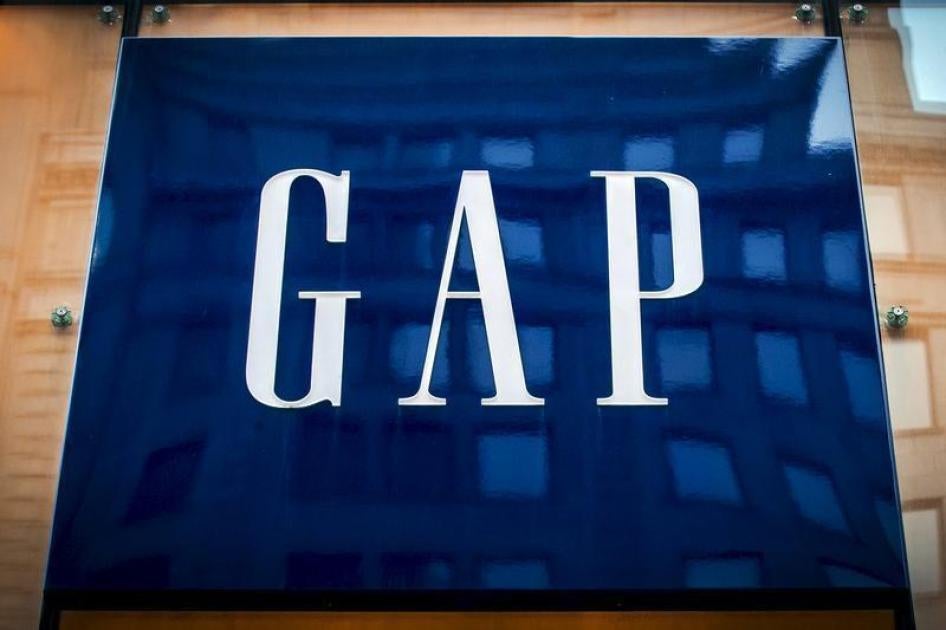Update: On September 8, 2016, Human Rights Watch learned that VF Corp has also disclosed its supplier list, bringing the number of major global apparel brands doing so in 2016 to at least four.
(New York) – Gap Inc. is the latest clothing brand to disclose the list of factories that produce its clothes around the world, Human Rights Watch said today. Previously, Gap had said that it was withholding information about its supplier factories for “competition reasons.”
Earlier in 2016, C&A and Marks and Spencer also went public with their factory lists, joining other big brands that already disclose them.
These include:
| Adidas | H&M | Mountain Equipment Co-op (MEC) | Patagonia |
| Columbia | KMART Australia | New Balance | Puma |
| Disney | Levis | Nike | Target USA |
| Target Australia |
“Three leading apparel brands – C&A, Marks and Spencer, and Gap – have disclosed their supplier lists this year,” said Aruna Kashyap, senior women’s rights counsel at Human Rights Watch. “Together they are sending an important message that transparency should be the norm in the garment industry.”
When apparel brands are transparent about their supplier factories, it helps workers and advocates swiftly alert brands to possible labor rights violations in the factories, giving brands an opportunity to take corrective steps. Transparency about suppliers also makes it easier for workers to alert brands when factories subcontract production to others without brand approval – a widespread problem that companies have often struggled to combat. Apparel brands cannot monitor conditions in factories they do not know about, and subcontracting factories often have worse records for underpayment of wages, dangerous working conditions, and other labor rights abuses.
Human Rights Watch and other organizations are pressing for global apparel brands to publicly disclose the factories that produce for them, and for transparency about other human rights risks in supply chains. Dozens of major global apparel brands – including Forever 21, Fast Retailing (Uniqlo), and Mango – still do not disclose supplier factories.
“The growing number of apparel industry leaders disclosing factories is good news for workers, the industry, and consumers,” Kashyap said. “Brands that do not disclose are holding out on a critical tool that can promote worker rights. They should stop making excuses.”









